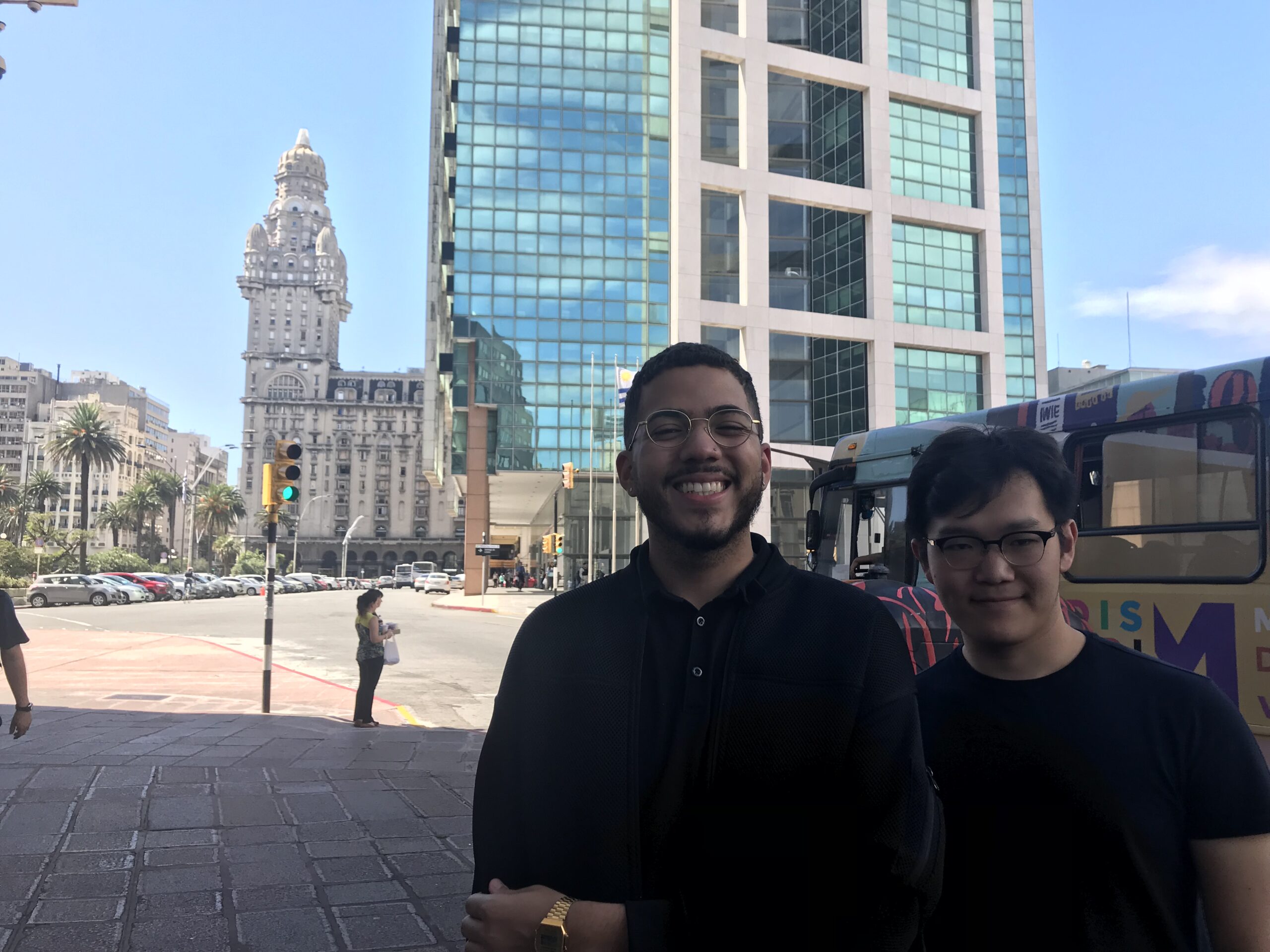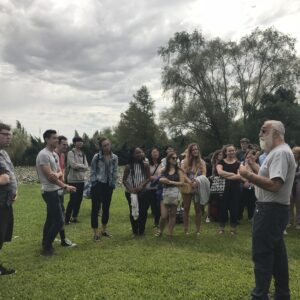Navigating a City Proud of their European Heritage as a Student of Color: Part One



I walked into the convenience store on the corner of my block in Buenos Aires. As I dipped my head into the shade of the corner store, I asked the cashier if they sold orange juice. They ran out of cold ones, he’d said, “Pero hay un Chino en la esquina.” Translation: “But there’s a Chinese person on the corner.” I could have sworn I’d misheard him but too nervous to ask, I smiled a thank you, and walked to the next corner store a block away. This cashier lamented the same, “Pero mira, hay un Chino en la esquina.” This time, perplexed, I asked him to repeat himself. He said the exact same thing, and I left the store a bit bewildered. On the corner I found a small supermarket run by a family of East Asian descent.
The citizens of Buenos Aires (often referred to as “Porteños”) are immensely proud of the Italian and Spanish heritage that sets them apart from most of Latin America. Food like pasta and pizza is abounding and even their dialect of Spanish is unique, titled “Castellano” rather than “Español.” The city is noticeably homogenous in the racial identity of citizens regarded as “real” Porteños. Naturally, this results in racial dynamics that will inevitably affect a student of color or ethnic minority’s study abroad experience. I am a white, dark-haired American and have been mistaken for a local multiple times so these are not experiences I can assume to anticipate. Thus, after their first two months living and going to school in the city, I asked IFSA students how their race or ethnicity has informed their cultural immersion in a city that roots its identity to its white colonial ancestors.
Language
IFSA’s Argentine Universities Program has students from different racial and ethnic backgrounds and not all of them have had similar experiences. However, of the six interviewed, each one remarked that they noticed differences in how they are received by citizens of Buenos Aires in comparison to the American cities and towns where they live. A big observation was language.
When I spoke with two students, one, female and born in South Korea, the other, male and raised in America but with parents of Malaysian, Cambodian, and Chinese descent, I found that Porteños use the word “Chino,” meaning “a person of Chinese nationality” to identify everyone that looks East Asian. The female student noted, “There were two times where I got called ‘China.’” However, she mentioned that this didn’t take her by surprise as she had spoken to students who had been to Buenos Aires through IFSA previously and they’d warned her that this would happen. The male student commented, “I do get semi-uncomfortable when people refer to me as ‘Chino,’ but I get that it’s part of the culture. It can get a bit hard to get used to though.” While it is apparent that this nomenclature is related to Porteño’s linguistic culture, it obviously results in a type of casual racism that comes from assuming one’s nationality and occupation based solely on racial appearance.
“Curiosity, and not animosity”
Both students mentioned above said that while their race marked them as foreigners, despite Buenos Aires’s large and established Korean and Chinese immigrant populations, neither student ever felt they had experienced hostile treatment as a result of passing as Chinese.
The male student mentioned that he was made hyper aware of his race while in the city, but usually in a subtle manner. “It’s not really the fact that I’m Asian that’s an issue, but just that my Asian-ness pretty much automatically labels me as a foreigner. I don’t generally feel uncomfortable with the way I’m treated, but I don’t have any illusions of being able to blend in.” The female IFSA student agreed, saying “People stare at my face.” However, she also felt inclined to mention that while this enhanced the feeling of being labeled as “an other,” it never seemed particularly threatening.
In a third conversation with a female student that identifies as Black and of African American descent, I was told something similar. She had also spoken to previous IFSA students at her American university who identify as Black and they gave her advice about what to expect. “They were honest and said ‘listen, you’re gunna stand out’,” she laughed, “but I’ve noticed its usually curiosity and not animosity. It’s more like they’re wondering why I’m here. People stare but they still say hi, whereas in the U.S. you don’t always get that.”
“Do you feel less judged by your race here?” I asked. She nodded slowly and responded, “Absolutely.”
How does IFSA respond?
In the first couple weeks of the program students were invited to dinner at our program director’s house if they identified as any minority. Three of the students interviewed mentioned attending this dinner wherein the program director explained a lot of the historical and cultural context behind Porteño behavior towards certain minorities. “It was really nice to get to talk about these topics with a local,” one student said. Another student mentioned, “I thought dinner was helpful because I always appreciate an opportunity to talk about race, and it was nice to get to do so with the director of the program.”
I also observed that a few people mentioned utilizing previous IFSA students as resources for what to expect.
The students above claimed they have not experienced any form of hostile treatment as a result of their race in Buenos Aires, but I learned from speaking to students of Mexican and Latin American descent that this does not hold true for everyone. I investigate these study abroad experiences in Part Two of this series.
Alex Kenoian is an International Relations & Computer Science double major at Mount Holyoke College and studies abroad with IFSA at the Argentine Universities Program in Buenos Aires in Spring 2018. She is an International Correspondent for IFSA through the Work-To-Study Program.